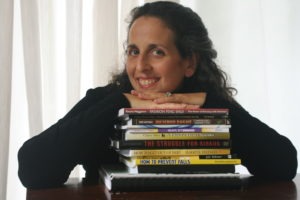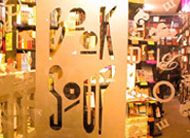
If you’re on my mailing list, you may know about our e-mail glitch this weekend. As an apology for re-sending the mini-course, I’ve offered to answer burning questions on my blog. For the next few days you’ll find answers to the burning questions that came through.
The first one’s from Janine. “Am I correct in wondering whether self publishing is kind of a false hope for people who desire to be published? They are on their own from a marketing point of view I would imagine.”
Great question, Janine. Self publishing is far from false hope. In fact, some of my self published clients have gotten more out of self publishing than some of my traditionally published clients. It has to do with being strategic about how you use your book and being clear about your goals.
First, I’d like to share some stories of self-published authors who are making an impact in their businesses and in other people’s lives with their books. After, I’ll address the second part of your question–about the marketing part of publishing–because people often misunderstand what publishers do for you–both traditional publishers and self-publishers. Lastly, I’ve provided some pointers for those going the self-published route.

1. When Evana Maggiore sells a copy of her book, Fashion Feng Shui: The Power of Dressing with Intention, off her internet site or at a speaking engagement, she often generates a $3,000 sale for her Fashion Feng Shui (c) training programs. And the person who takes the training often generates more buzz for Fashion Feng Shui (c) (if they become a practitioner) or ends up working with Evana or one of the many practitioners she’s trained.
People may not find her book in bookstores, but many people find her book surfing the internet. As an active member of the Association of Image Consultants International (AICI), past-president and well known innovator, Evana also has a large word of mouth following. Her book helps support that.

2. Pat Hastings often gives away copies of her book, Simply a Woman of Faith. This has led to opportunities such as leading a retreat in Bermuda, receiving new spiritual coaching clients and speaking opportunities. She sells her book at her many speaking gigs and on the internet.
3. Betty Perkins Carpenter has sold over 130,000 copies of her self-published book How to Prevent Falls. She sells her book at her many speaking engagements, on the internet and through a book reseller.
Now, let’s clear up the marketing issue. A traditional publisher does three main things for you:

1. They get your book into bookstores. This is the distribution end of marketing. Self-publishing companies will tell you that they’ll do this but most self-published authors I’ve met have complained that they did not get the distribution they were promised. The only exceptions I’ve heard of so far were from Justin Sach’s company. His authors said he did all he promised.
2. Traditional publishers provide a certain cache. Producers and journalists know that your book has met a higher criteria by being traditionally published. National media, in particular, will be more open to a pitch from a traditionally published author (or their publicist).

3. A traditional publisher has more experience in book design and packaging than you as a novice. Ideally, that means they will design a very professional, compelling cover that sells books. Usually that’s the case, but publishers can make mistakes. The layout will look professional. Many self published books look terrible. You open them up and the author loses a measure of credibility because it just looks junkier. Traditional publishers also edit books, but the quality and extent of the editing can vary significantly.
What doesn’t a traditional publisher do? They generally don’t do much publicity or actual marketing (beyond distribution). Unless you’re a high profile author, or the publisher has just given you a huge advance and plans to make your book their big book of the year, don’t expect much publicity through them. It will be your job to hire a publicist and promote your book. Of course, if you get a nice advance, you can apply that advance money towards the publicity.
What does this all mean for a self-published author?
1. Do your research. If you plan to self publish, ask for samples and make sure you’ll get a high quality product. Ask for references. Talk to as many of their authors as you can.
2. Hire your own designers, editor and proofreader or find a hybrid publisher or self-publishing company that you know will do an excellent job. Generally, you’ll get better quality design from someone you hire than someone hired by the publishing company. Most publishing companies are more focused on cost than quality. Hire someone for the book cover and someone else for the layout. Make sure you see samples of their work and ask for references. The same goes for editing and proofreading.
3. Don’t believe the hype. Ask for references and ask these authors if they got the kind of distribution the publisher is promising. Chances are, they did not. Update: as of 2016, a handful of hybrid publishers really are offering excellent distribution and marketing. So do your homework and ask authors about their experiences. Or just search for reviews about the publisher and you may find enough information to help you assess the veracity of their claims.
4. Don’t buy the marketing package, unless you can verify the results of their authors. I have heard many sad tales from authors who bought their self-publishing company’s marketing package. Sounds good when you sign and usually they amount to zippo. However if you’re a self published author with a positive experience, please let me know by commenting below. I’d love to hear of any companies that actually do a good job marketing. Another 2016 Update: As mentioned above, there are a handful of hybrid publishers doing a great job of marketing. Do your homework to find out which ones you can trust.
Hope that clears up any confusion and answers your questions. Feel free to ask more questions below. And I’d love to hear from self-published authors on their experience with publishers. It’s always good to know who’s doing a good job for their clients or what advice you have based on your self-publishing experiences.


